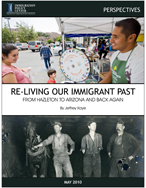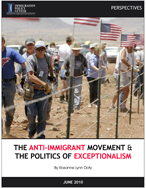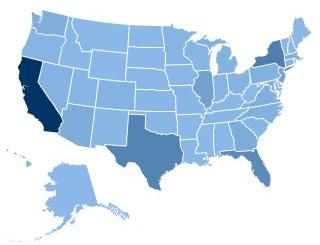 The intent of Arizona’s SB 1070, the “Support Our Law Enforcement and Safe Neighborhoods Act,” is to chase illegal immigrants out of the state. Or, as the new law puts it more formally: “to make attrition through enforcement the public policy of all state and local government agencies in Arizona.” The stern new law quickly made Arizona the target of international news headlines, boycotts, demonstrations, and lawsuits—most recently by the ACLU and a coalition of civil rights groups. While the spotlight has been on Arizona, however, copycat legislation has been brewing in at least 16 other states, supported to one extent or another by two organizations that have made a cause of providing legal and political assistance to lawmakers similarly intent on “attrition through enforcement.”
The intent of Arizona’s SB 1070, the “Support Our Law Enforcement and Safe Neighborhoods Act,” is to chase illegal immigrants out of the state. Or, as the new law puts it more formally: “to make attrition through enforcement the public policy of all state and local government agencies in Arizona.” The stern new law quickly made Arizona the target of international news headlines, boycotts, demonstrations, and lawsuits—most recently by the ACLU and a coalition of civil rights groups. While the spotlight has been on Arizona, however, copycat legislation has been brewing in at least 16 other states, supported to one extent or another by two organizations that have made a cause of providing legal and political assistance to lawmakers similarly intent on “attrition through enforcement.”
The two groups, which work together, are the Washington, D.C.-based Immigration Reform Law Institute (IRLI), an affiliate of the Federation for American Immigration Reform (FAIR) and the lesser-known State Legislators for Legal Immigration. IRLI lawyer Kris W. Kobach, who was a chief adviser on immigration issues to Attorney General John Ashcroft following the attacks of 9/11, has consulted with lawmakers around the country, helping frame and defend state and local legislation targeting illegal immigrants. (At the Justice Department, Kobach engineered a controversial program that aimed to register visitors from certain Muslim countries).Read more...
Published On: Fri, May 21, 2010 | Download File





